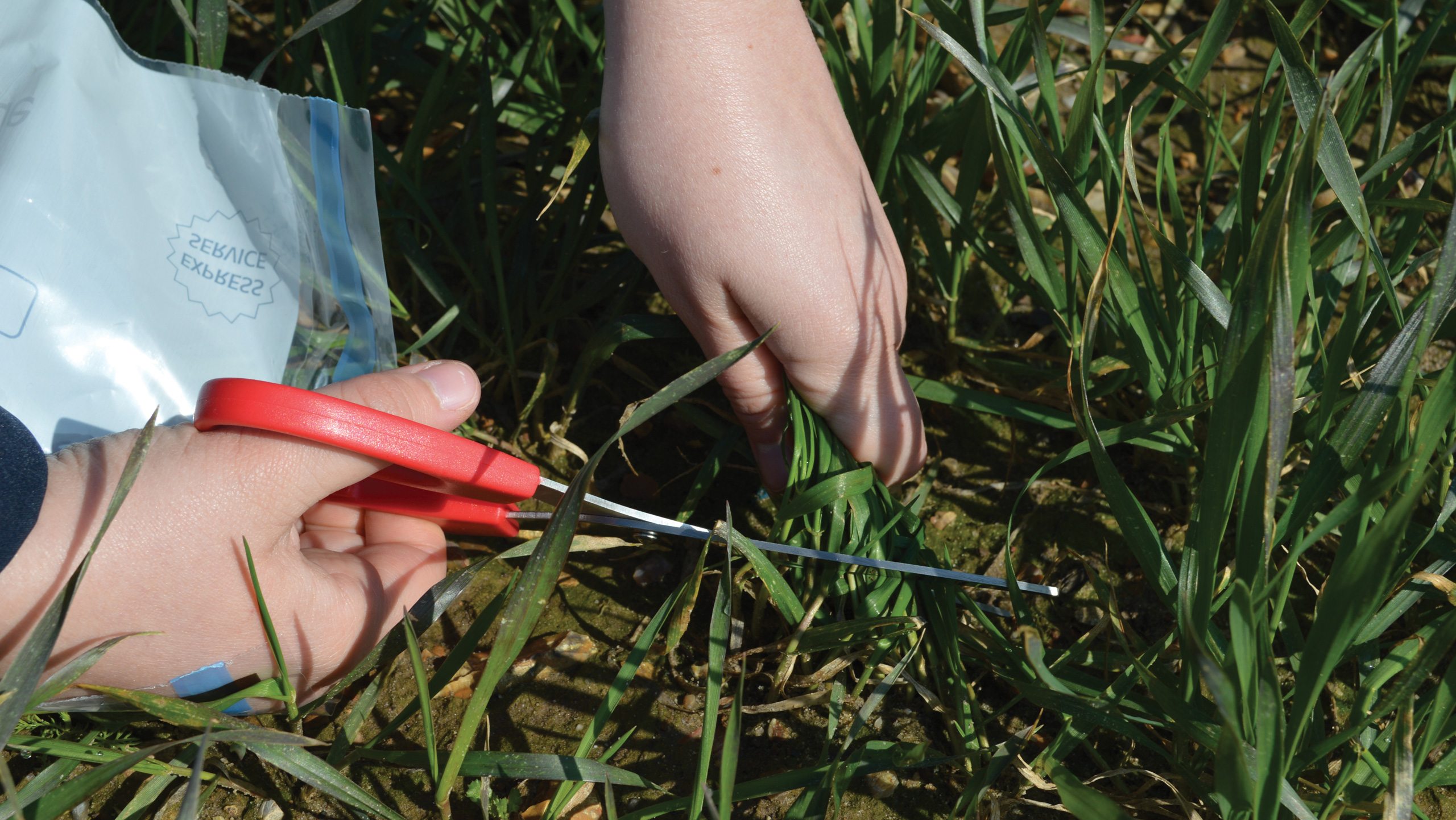MIT College of Agriculture and Technology Presents MITCAT Trends
Bluetongue outbreak endangers UK livestock – what you need to know about the virus
Bluetongue causes illness and death in cattle, sheep, goats and other ruminants. Juice Flair/ShutterstockA tiny midge, no bigger than a pinhead, is bringing UK farming to its knees. The culprit? A strain of the bluetongue virus that’s never been seen before.As of July 1, the whole of England has been classed as an “infected area” due to bluetongue virus serotype 3 (BTV-3).There are movement restrictions and testing in place in Scotland, Wales and the island of Ireland. No animals from England –
Selfies, sugar, and death: How tourists are endangering elephants
Tourists feeding wild elephants may seem innocent or even compassionate, but a new 18-year study reveals it s a recipe for disaster. Elephants in Sri Lanka and India have learned to beg for snacks sugary treats and human food leading to deadly encounters, injuries, and even the ingestion of plastic. Once wild animals become accustomed to handouts, they lose their natural instincts, grow bolder, and risk both their lives and the safety of humans.
The Mystery of Mercury’s Missing Meteorites
Most meteorites that have reached Earth come from the asteroid belt between Mars and Jupiter. But we have 1,000 or so meteorites that come from the Moon and Mars. This is probably a result of asteroids hitting their surfaces and ejecting material towards our planet.It should also be physically possible for such debris to reach the Earth from Mercury, another nearby rocky body. But so far, none have been confirmed to come from there—presenting a longstanding mystery.A new study my colleagues and
These dogs are trained to sniff out an invasive insect—and they're shockingly good at it
Dogs trained by everyday pet owners are proving to be surprisingly powerful allies in the fight against the invasive spotted lanternfly. In a groundbreaking study, citizen scientists taught their dogs to sniff out the pests’ hard-to-spot egg masses with impressive accuracy. The initiative not only taps into the huge community of recreational scent-detection dog enthusiasts, but also opens a promising new front in protecting agriculture. And it doesn’t stop there—these canine teams are now sniffi
This 10-minute ozone hack keeps mangoes fresh for 28 days
Mango lovers and growers alike may soon rejoice: scientists at Edith Cowan University have found that a simple dip in ozonated water can drastically extend the shelf life of mangoes by up to two weeks while reducing spoilage. This technique, called aqueous ozonation, helps prevent chilling injuries that typically occur during cold storage, a long-standing challenge in mango preservation.

Groundswell 25: Why regen agronomy is a specialist skill
Agronomy for a regenerative farming system often needs greater attention to detail and extra time, so farmers must be prepared to pay for it, visitors to
ICCFM Urges Government To Keep Agriculture Out Of India-US Trade Talks
The US has been engaged in a trade war with China, Mexico, and Canada since 2018, which has severely impacted US agricultural exports ...
Missouri Governor Mike Kehoe Signs Key Legislation Bolstering Agriculture and Rural Healthcare
Missouri Governor Kehoe signs bills to support agriculture, focusing on healthcare access and water management.
US Department of Agriculture issues official warning to Alpha Genesis facility
The U.S. Department of Agriculture issued an official warning to the controversial monkey research facility in Yemassee this ...
The Alabama Department of Agriculture and Industries is accepting farm applications
Family farms have an opportunity to gain more eyes with the help of the Alabama Department of Agriculture and Industries.
Corals in crisis: A hidden chemical shift is reshaping Hawaiian reefs
Hawaiian coral reefs may face unprecedented ocean acidification within 30 years, driven by carbon emissions. A new study by University of Hawai‘i researchers shows that even under conservative climate scenarios, nearshore waters will change more drastically than reefs have experienced in thousands of years. Some coral species may adapt, offering a glimmer of hope, but others may face critical stress.
They fled the flames—now jaguars rule a wetland refuge
After devastating wildfires scorched the Brazilian Pantanal, an unexpected phenomenon unfolded—more jaguars began arriving at a remote wetland already known for having the densest jaguar population on Earth. Scientists discovered that not only did the local jaguars survive, but their numbers swelled as migrants sought refuge. This unique ecosystem, where jaguars feast mainly on fish and caimans and tolerate each other’s presence unusually well, proved remarkably resilient. Researchers found that
Sudan’s war is an economic disaster: here’s how bad it could get
Since April 2023, Sudan has been engulfed in a devastating war between the Sudanese Armed Forces and the Rapid Support Forces. What began as a struggle for power has turned into a national catastrophe. More than 14 million people have been displaced. Health and education systems have collapsed and food insecurity threatens over half the population of about 50 million.The war has disrupted key sectors, triggering severe economic contractions, and worsening poverty and unemployment levels. Sudan’s

West Bengal Boosts Food Processing & Horticulture
West Bengal focuses on attracting investment in food processing and horticulture, modernizing farming with advanced technologies and promoting women's empowerment in agriculture.
World-Class Horticulture, Architecture, and Natural Beauty at Longwood Gardens
Longwood Gardens in Kennett Square offers world-class horticulture, architecture, and natural beauty spread across more than 1,000 acres, writes Bridget ...

Horticulture Ph.D. Student Investigates Turfgrass Diseases Threatening U.S. Lawns and Fields
The research by Sharandeep Singh Chahal, a doctoral student in horticulture, highlights the damage caused to the popular zoysiagrass, widely used on lawns, athletic fields and golf courses.
California farmers identify a hot new cash crop: Solar power
This dairy farm in California's Central Valley has installed solar panels on a portion of its land. George Rose/Getty ImagesImagine that you own a small, 20-acre farm in California’s Central Valley. You and your family have cultivated this land for decades, but drought, increasing costs and decreasing water availability are making each year more difficult.Now imagine that a solar-electricity developer approaches you and presents three options:You can lease the developer 10 acres of otherwise

John Sedgwick St. Louis - 5 Things to Look for When Hiring a Global Agriculture Advisor
Looking to hire a global agriculture advisor? Learn what to look for—expertise, global experience, and proven success—with insights from John Sedgwick St. Louis.
More Video's:

LPU - Agriculture
Client : LPU
Directors : Sahil Anant & Rohan Yadav
DOP: Tuhin Mukherjee
Dogs can detect Parkinson’s years before symptoms—with 98% accuracy
Dogs trained to detect Parkinson’s disease using scent have shown remarkable accuracy in new research. In a double-blind trial, they identified skin swabs from people with Parkinson’s with up to 80% sensitivity and 98% specificity, even when other health conditions were present. The findings offer hope for a simple, non-invasive diagnostic method using biomarkers that appear long before traditional symptoms, potentially allowing earlier treatment and slowed disease progression.


